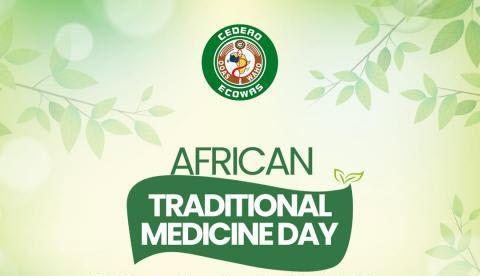
- Ladies and gentlemen working in the health sector in the Member States of the Economic Community of West African States (ECOWAS);
- Ladies and gentlemen, partners in the health sector;
- Dear practitioners and advocates of traditional medicine;
- Dear citizens of ECOWAS Member States;
- Ladies and gentlemen;;
Today, ECOWAS joins the rest of the world in celebrating African Traditional Medicine Day. This is an opportunity to recognise and reaffirm our commitment to this vital aspect of our African health heritage.
At a time marked by repeated health crises, problems with drug supply, inequalities in access to healthcare and dwindling resources, it is essential that our African continent harnesses its own strengths.
The theme chosen for the commemoration of the 23rd African Day of Traditional Medicine, “Strengthening the evidence base for traditional medicine”, is a call to action and an invitation to take a decisive step forward: that of applying scientific rigour to our traditional knowledge.
Our traditional knowledge of health is rich in treatment solutions, both in terms of products and practices rooted in our cultures and passed down from generation to generation. However, in order for them to be fully integrated into our healthcare systems, they must also meet safety, efficacy and quality requirements. It is therefore urgent to ensure the recognition and integration of Traditional African Medicine into our health systems by working to structure national policies, promote research, and establish mechanisms for validating traditional practices and products through a rigorous, evidence-based approach.
Ladies and gentlemen,
Strengthening the evidence base for traditional medicine is a strategic priority for the West African Health Organisation. This involves establishing evaluation protocols, creating regional registries, and fostering partnerships between researchers, universities and practitioners of traditional medicine.
The objective is clear and well defined: to generate reliable, replicable and accessible data. Beyond preserving our ancestral medical knowledge, we must move from an empirical approach to a systematic one, based on validated methodologies: clinical trials, pharmacovigilance, standardisation of extracts, and documentation of therapeutic results. This approach involves:
- Investment in scientific research on traditional African medicine, through the study of practices, products and protocols derived from our local knowledge;
- The promotion and use of traditional practices that have proven their worth, particularly for well-defined pathologies where modern medicine has shown its limitations;
- Guaranteeing the quality and safety of products derived from our medicinal plants;
- Protecting the rights of traditional medicine practitioners and preserving biodiversity.
This will ensure that the structured integration of traditional medicine into national health policies is more consistent across the ECOWAS region. While I welcome the efforts already made by several ECOWAS Member States, I encourage us to do more.
On this symbolic day, I therefore call on Member States to:
- develop and strengthen evidence-based national policies;
- accelerate research and scientific validation efforts on medicinal plants and traditional practices through support for national institutes, universities and specialised research centres;
- support clinical trials on local remedies in order to establish legal frameworks conducive to the integration of this knowledge into national health policies;
- promote interdisciplinary research that respects indigenous knowledge and complies with scientific requirements;
- create strong links between modern and traditional medicine through collaboration and dialogue between researchers, traditional medicine practitioners and health professionals;
- protect traditional knowledge through harmonised, appropriate and equitable intellectual property mechanisms;
- encourage local innovation, in particular by supporting the development of safe, effective and accessible herbal medicines;
- encourage the use of traditional knowledge to develop new and innovative remedies and treatments.
WAHO reaffirms its commitment to supporting Member States in this essential transformation. The Organisation will continue to work towards the strategic, progressive and sustainable integration of African medicine into national health systems.
"Together, by combining rigorous research, political will and respect for our traditions, we can build a strong, credible and fully recognised African medicine. It is not a relic of the past, but a path to the future, an essential element of our health resilience and a powerful driver for achieving Universal Health Coverage in our region."
The 23rd African Traditional Medicine Day (ATMD 2025) is a strategic opportunity to put local knowledge back at the heart of public health policies.
Long live African traditional medicine in the service of public health! Happy celebrations to all.
Thank you!
Dr Melchior Athanase J. C. AÏSSI
Director General
